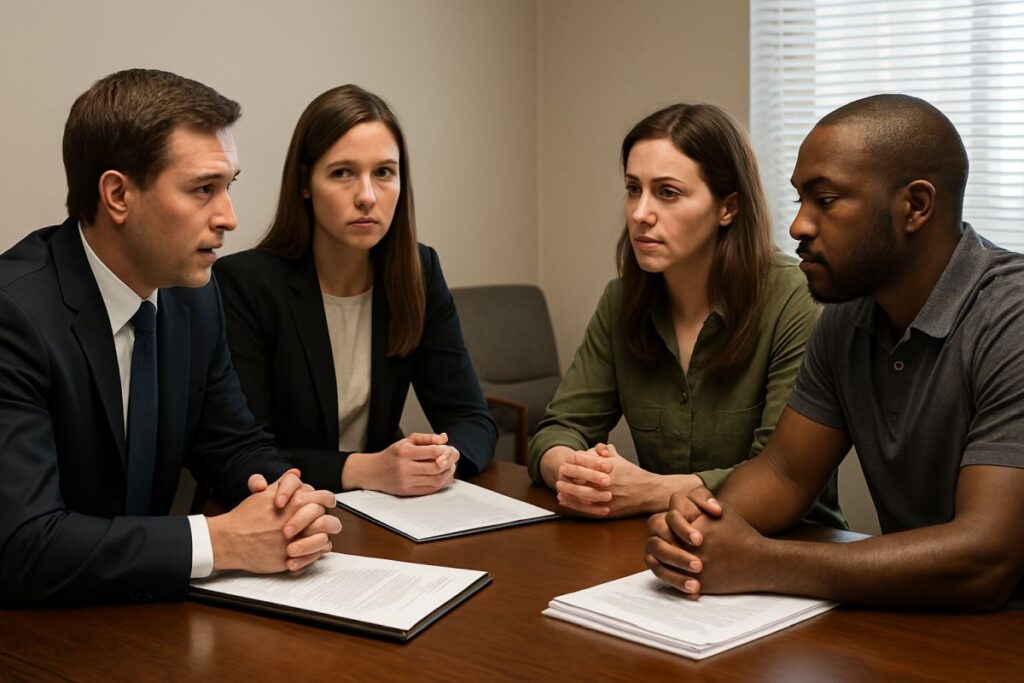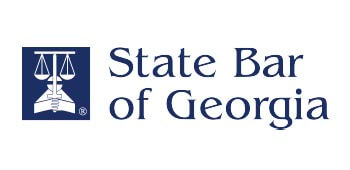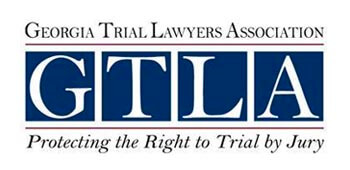Suffering harm due to someone else’s negligence—whether in a personal injury incident or through medical malpractice—can leave victims overwhelmed and in need of justice. However, initiating a lawsuit in Georgia requires more than simply alleging fault. The injured party, or “plaintiff,” must present compelling evidence proving that the defendant’s actions or omissions were the legal cause of the harm suffered. This responsibility is known as the “burden of proof.” If the plaintiff fails to meet this burden for even one critical element of the case, the lawsuit can be dismissed outright—regardless of how severe the injury may be.

What Does ‘Burden of Proof’ Actually Mean in Georgia Law?
Under Georgia civil procedure, the burden of proof is the legal obligation placed on the plaintiff to prove all necessary components of their case to the court’s satisfaction. In civil cases such as personal injury or medical malpractice, this burden is usually measured by a “preponderance of the evidence.” That means the plaintiff must prove that each essential fact in their claim is more likely than not to be true—essentially, just over 50%.
For a personal injury case in Georgia, this involves demonstrating that:
- The defendant owed the plaintiff a legal duty of care;
- The defendant breached that duty through negligence;
- That breach was the proximate cause of the plaintiff’s injuries; and
- The plaintiff suffered actual, compensable damages.
In medical malpractice cases, which are more technical by nature, Georgia law (O.C.G.A. § 51-1-27) requires the plaintiff to establish that:
- The healthcare provider deviated from the accepted standard of care;
- This deviation directly caused the plaintiff’s injuries; and
- Quantifiable damages resulted from the breach.
Importantly, Georgia law also requires that medical malpractice claims be accompanied by an expert affidavit (O.C.G.A. § 9-11-9.1) that outlines the standard of care and how it was violated. This adds another layer of evidentiary responsibility to meeting the burden of proof.
Higher Standards of Proof: When ‘Preponderance’ Isn’t Enough
Although most civil claims rely on the “preponderance of the evidence” standard, some aspects of a case—especially those involving punitive damages—require a more stringent level of proof. Georgia law (O.C.G.A. § 51-12-5.1) mandates that punitive damages may only be awarded when there is “clear and convincing evidence” that the defendant acted with willful misconduct, fraud, or malice. This means the plaintiff must show that it is substantially more likely than not—roughly 75% or greater—that such behavior occurred.
Understanding these distinctions is vital. Plaintiffs often confuse punitive damages with general compensation, but meeting the heightened burden for punitive awards requires distinct strategy, supporting evidence, and often, more rigorous expert testimony.
Does the Burden of Proof Ever Shift to the Defendant?
While the burden of proof is typically on the plaintiff throughout trial, it can shift temporarily in specific procedural contexts. For example, when a defendant files a motion for summary judgment under Georgia’s Civil Practice Act (O.C.G.A. § 9-11-56), the burden shifts to the defendant to show that there is no genuine issue of material fact and that they are entitled to judgment as a matter of law. Once that threshold is met, the plaintiff must then rebut it with sufficient evidence to continue to trial.
Why the Burden of Proof Determines the Outcome of Your Case
Meeting the burden of proof is the single most critical factor in whether your case is successful. A jury—or judge, in a bench trial—will evaluate whether the presented evidence satisfies every legal element required under Georgia law. If even one element falls short, the entire case can fail. It is not uncommon for strong injury claims to be dismissed simply because of insufficient evidence connecting the breach to the injury (causation) or lack of documentation establishing damages.
That’s why experienced attorneys spend significant time and resources building the evidentiary foundation of a case before ever stepping foot in a courtroom. The process includes compiling medical records, securing expert testimony, collecting witness statements, analyzing accident scenes, and organizing every piece of documentation in a manner that supports the overall narrative of liability and harm.
Persuading a Georgia Jury: The Practical Application of Burden of Proof
Even if your legal arguments are sound, your evidence must ultimately persuade a jury of ordinary citizens. Georgia jurors come with varied life experiences and perspectives, and attorneys must present the case in a way that is logical, emotionally compelling, and supported by reliable evidence. While evidence must meet legal thresholds, it must also be understandable and believable to the individuals making the final decision.
This makes storytelling and trial strategy central to satisfying the burden of proof. Lawyers often use demonstrative exhibits, expert visualizations, and carefully prepared witness testimony to help jurors connect the dots. The credibility of your evidence is often as important as its quantity.
How an Attorney Helps You Meet Your Burden
The legal burden placed on injury victims is high—but the right legal team can make the difference. A well-prepared attorney will know what specific evidence must be obtained, how to structure it according to Georgia’s legal standards, and how to present it in court. At Brodie Law Group, we bring a meticulous, methodical approach to case-building that ensures your burden of proof is not just met—but exceeded.
Our attorneys understand the legal standards at play, but more importantly, we know how to apply those standards in the real-world courtroom settings across Georgia. Whether your case involves a routine auto accident or complex surgical negligence, we prepare every case as if it will go to trial. That diligence often results in stronger settlements and, when necessary, decisive victories in court.
Conclusion: The Right Legal Strategy Begins with Understanding the Burden of Proof
In Georgia personal injury and medical malpractice cases, the burden of proof isn’t just a procedural concept—it’s the foundation of your entire claim. Without meeting that burden, your path to justice ends, regardless of how severe your injuries are. That’s why working with an experienced and dedicated legal team is essential. At Brodie Law Group, we know what Georgia courts demand, and we deliver. Call our Macon office today at (478) 239-2780 for a free consultation, and let’s start building the proof your case deserves.
At Prine Law Group, we don’t just take cases—we take care of people. Whether you’re navigating the aftermath of a personal injury, facing criminal charges, or dealing with a workplace accident, our experienced legal team offers personalized attention and strategic solutions tailored to your situation. With offices serving Dublin, Macon, and the broader Middle Georgia area, we’re here when you need strong advocacy and clear guidance. Call us today at 478-257-6333 to schedule a confidential consultation and take the first step toward peace of mind and legal resolution.





